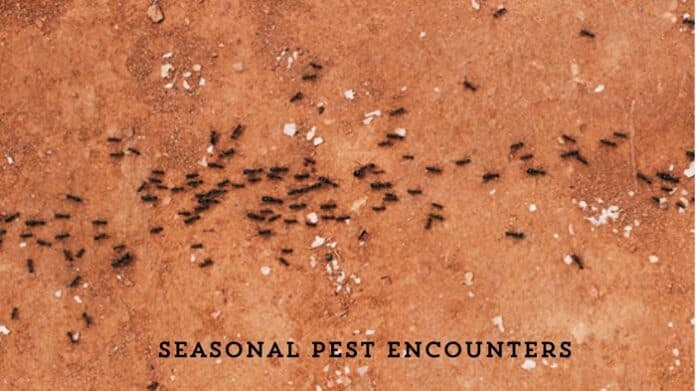The various obstacles that homeowners must overcome to keep their homes secure and sanitary change with the seasons. One of the more ongoing problems is pest infestation, which can range from a little annoyance to a major structural and health risk. It is imperative that you know how to get ready for these seasonal intruders to protect your family’s health and the cleanliness and integrity of your house.
Understanding seasonal pests
A distinct set of pests are introduced with each season. Therefore, it’s critical to understand which pests are most likely to arrive during the year. Ants and termites increase in the spring as they look for new places to colonise. Additionally, the warmer weather encourages mosquito breeding, which increases the risk of contracting infections like Zika and the West Nile Virus. The arrival of summer can increase pest activity, including wasps and flies, particularly in locations where people congregate. The emphasis switches to rats looking for refuge from the chilly weather in the autumn. Understanding these periodic trends enables homeowners to take preventative measures and prepare for infestations.
Preventative measures for pest control
A proactive strategy is needed to prevent pests, emphasising taking action to ward them off before they cause major problems. This entails caulking gaps and crevices to prevent pests from entering your house. Pest attractiveness can be decreased by keeping your kitchen tidy and food detritus-free. It’s also critical to properly maintain your garden to prevent the establishment of bug breeding sites. Screens should be used on windows and doors, as well as appropriate rubbish and firewood disposal and storage to reduce the possibility of pest issues.
Effective pest management frequently necessitates expert intervention. Partner with reputable companies that can offer significant support and known for their dependability and effective services like Top Line Pest Control. They specialise in all-inclusive pest management programmes that keep your house safe all year round. Because of their eco-friendly methods, they are an excellent option for families, guaranteeing their home’s safety for kids and pets alike.
Professional intervention and natural remedies
Even while prevention is important, professional help may be needed due to infestation. Pest control experts must eliminate significant infestations and identify and reduce potential threats. Natural and DIY pest deterrents are also effective for less involved people. Peppermint and tea tree oil repel insects, and vinegar and baking soda help treat minor pests.
Regular monitoring and evaluation
Maintaining pest prevention in your home demands ongoing maintenance. This involves regularly inspecting your home for bug activity and assessing your pest control methods. It’s important to be flexible because different pests provide new challenges. Schedule regular expert inspections to keep your home safe and pleasant year-round.
Conclusion
You can successfully maintain a pest-free home by understanding the seasonal nature of pests, implementing preventive measures, hiring professionals when needed, and routinely evaluating your pest management procedures. These precautions are essential for any homeowner since they safeguard your property and improve your family’s health and safety.





